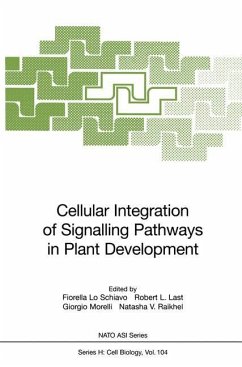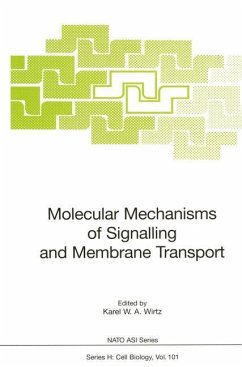
Cell Signalling in Prokaryotes and Lower Metazoa
Versandkostenfrei!
Versandfertig in 1-2 Wochen
153,99 €
inkl. MwSt.

PAYBACK Punkte
77 °P sammeln!
Cell signalling lies at the heart of many biological processes and currently is the focus of intense research interest. In multicellular organisms, it is central to how different types of cell communicate with each other and how they detect and respond to extracellular signals. Intercellular communication is vital to single-celled organisms as well, allowing them to respond to environmental cues and signals.To date, much of the understanding of signalling mechanisms has come from research on specific cell types (eg mouse lymphocyte and cardiomyocyte) or on organisms in which communication syst...
Cell signalling lies at the heart of many biological processes and currently is the focus of intense research interest. In multicellular organisms, it is central to how different types of cell communicate with each other and how they detect and respond to extracellular signals. Intercellular communication is vital to single-celled organisms as well, allowing them to respond to environmental cues and signals.
To date, much of the understanding of signalling mechanisms has come from research on specific cell types (eg mouse lymphocyte and cardiomyocyte) or on organisms in which communication systems such as nervous and endocrine systems are well established. This volume therefore aims to 'fill the gap' by concentrating on 'simple organisms' where the elements of those signalling systems first evolved. Many of the groups covered contain important pathogens or parasites, and the potential for manipulating signalling pathways for therapeutic intervention will be highlighted.
To date, much of the understanding of signalling mechanisms has come from research on specific cell types (eg mouse lymphocyte and cardiomyocyte) or on organisms in which communication systems such as nervous and endocrine systems are well established. This volume therefore aims to 'fill the gap' by concentrating on 'simple organisms' where the elements of those signalling systems first evolved. Many of the groups covered contain important pathogens or parasites, and the potential for manipulating signalling pathways for therapeutic intervention will be highlighted.














